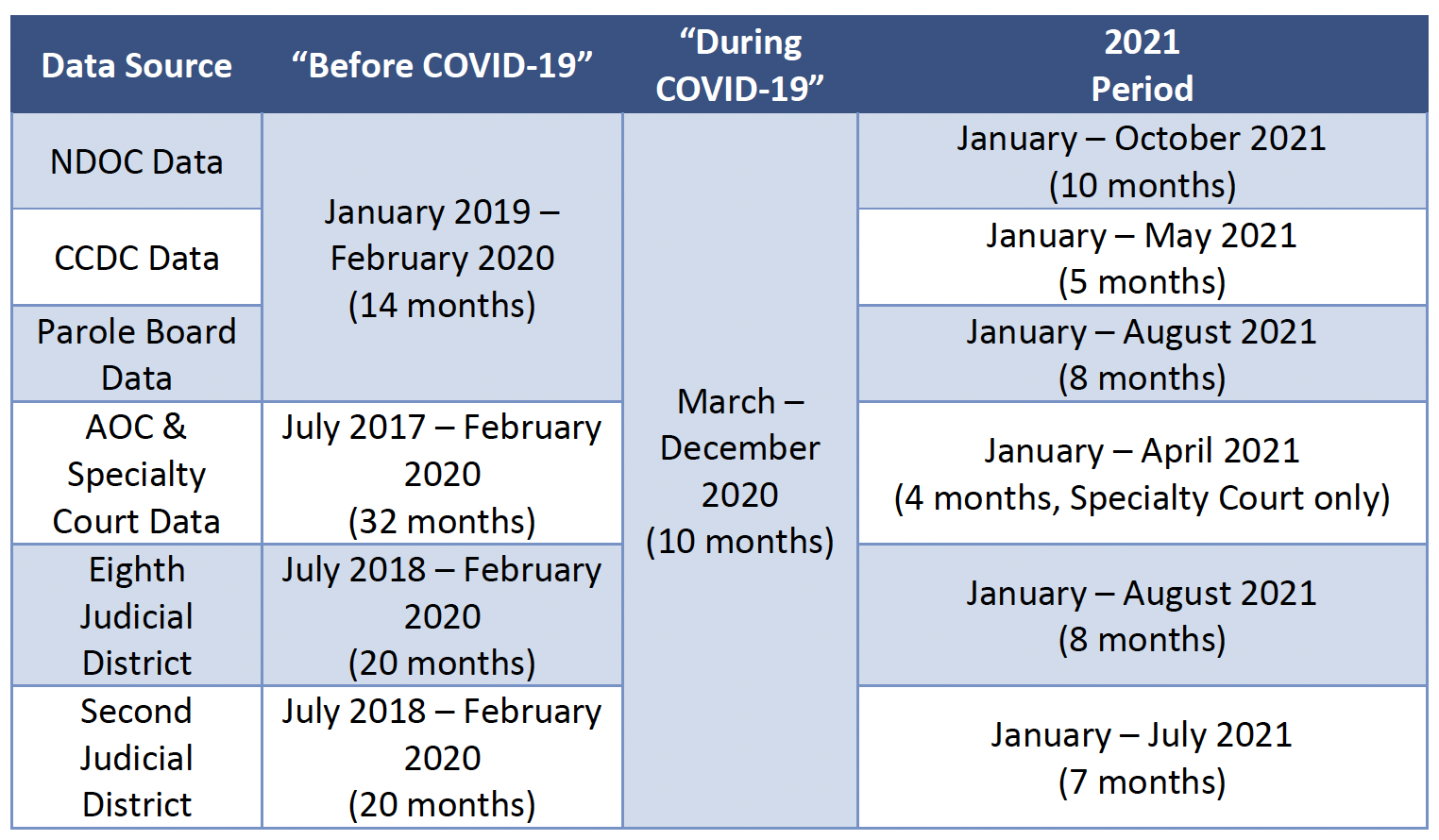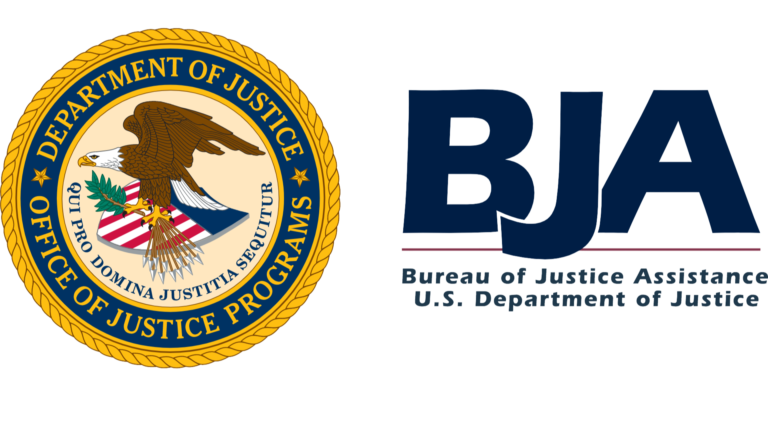Methods
In order to understand COVID-19’s impact on Nevada’s justice system, CJI conducted both quantitative and qualitative research, reviewing data from state and local agencies and interviewing practitioners throughout the state. Data were provided by the Administrative Office of the Courts (AOC), Specialty Courts, Nevada Department of Corrections (NDOC), Clark County Detention Center (CCDC), the Eighth and Second Judicial Districts, and Nevada Board of Parole Commissioners. CJI also conducted an online survey of Nevada Parole and Probation (NPP) officers, asking questions about changes to caseloads, violations, risk levels of individuals on supervision, and general challenges that occurred during the pandemic.21
To get an idea of how things changed over time, the data received were grouped into distinct time periods (see Table 1), comparing trends as they existed prior to the pandemic, during the pandemic, and during 2021.22 Variables analyzed included admissions, releases, filings, demographics, sentence lengths, and length of stay, among others.
Table 1. Periods defined as before and during COVID-19 or through 2021 based on data availability.

The stakeholders interviewed represented a variety of perspectives and professional backgrounds, as well as diverse regions of the state. CJI spoke with judges, prosecutors, defense attorneys, treatment providers, law enforcement personnel, advocates for incarcerated individuals, directly impacted persons, correctional and community supervision staff, court personnel, public health professionals, legislators, representatives from the victims and survivors’ community, and community support program staff. Through the interviews, CJI learned of substantial changes adopted at various points in the justice system. In addition to assessing the consequences of COVID-19, one of the goals was to identify any policies and practices established under pandemic conditions that could be permanently adopted, both to improve the delivery of justice and to safely keep corrections populations from increasing as the state moves forward.
Endnotes
- CJI provided NPP personnel headquarters with a web link to the anonymous online survey, and received approximately 45 responses. There were 178 parole and probation officers eligible for completing the survey, 46 of whom responded, for an overall response rate of 26 percent. Only half (four) of the eight NPP Command offices are represented in the survey responses, the majority from Las Vegas followed by Reno.
- The time period defined as ‘during COVID-19’ is necessarily somewhat arbitrary due to the fact that in many respects the pandemic is not over. For the purposes of comparison, the March to December 2020 period was chosen both because many data sets analyzed cut off at December 2020, and because stakeholders reported the greatest systemic effects of the pandemic during the March to December 2020 period. As such, the 2021 data this report covers more accurately describe a different and more recent stage of the pandemic than it does a “post-pandemic” period.

This project was supported by Grant No. 2015-ZB-BX-K002 awarded by the Bureau of Justice Assistance. The Bureau of Justice Assistance is a component of the Department of Justice’s Office of Justice Programs, which also includes the Bureau of Justice Statistics, the National Institute of Justice, the Office of Juvenile Justice and Delinquency Prevention, the Office for Victims of Crime, and the SMART Office. Points of view or opinions in this document are those of the author and do not necessarily represent the official position or policies of the U.S. Department of Justice.

The Crime and Justice Institute (CJI), a division of Community Resources for Justice, works to improve public safety and the delivery of justice by providing nonpartisan technical assistance, research, and other services to improve outcomes across the spectrum of the adult and juvenile justice systems, from policing and pretrial through reentry. CJI provides direct technical assistance, assessment, implementation, research, data analysis, training, facilitation, and more. We take pride in our ability to improve evidence-based practices in public safety agencies and gain organizational acceptance of those practices. We create realistic implementation plans, put them into practice, and evaluate their effectiveness to enhance the sustainability of policies, practices, and interventions. Find out more at www.crj.org/cji.
